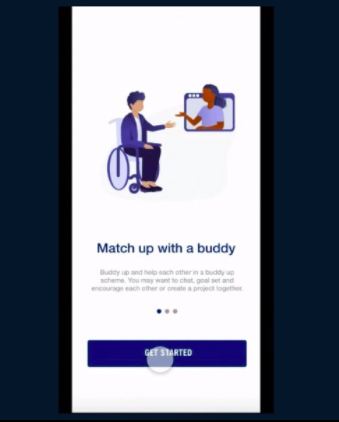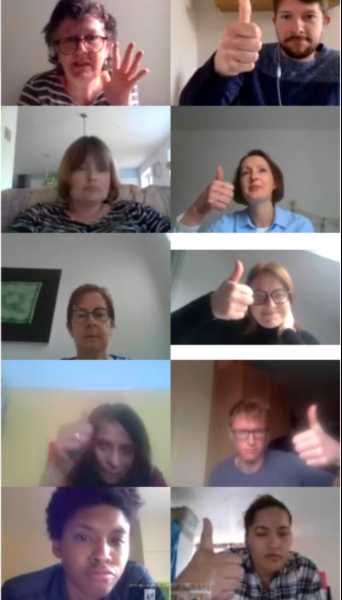Online Hackathon allows Joint Faculty students to set up Virtual Buddy scheme prototype
The Faculty of Health, Social Care and Education hosted an online hackathon in April. The event aimed to help shape ideas around offering a virtual buddy scheme between student nurses and people with learning or complex disabilities who find themselves isolated from society - something that has become even more challenging during the Covid-19 lockdown. 
Theresa Nash-Patel, Associate Professor in Nursing, has been running the Heritage 2 Health (H2H) project for a number of years, where student nurses buddy with vulnerable and isolated members of society to make meaningful connections and inform student nurses for future practice. These projects help teach student nurses (and student teachers) understand how to talk to someone with a learning disability or complex disability, and listen to their needs.
Current lockdown measures have made it an especially challenging time to deliver much needed care to those with learning disabilities or complex disability, and to combat the isolation issues that have resulted from the situation. This inspired Professor Nash-Patel to set up the online hackathon, as a way of assessing how our work is enhanced and impacted, and how it evolves, through virtual connections.
The team was joined by representatives from voluntary and healthcare organisations such as Kingston Meancap, Your Healthcare and Kingston Eco-Op, as well as facilitators such as Story AID and Singing4Health. All of these work with the H2H scheme in order to share their experiences of people they support and explain their needs.
 Students from Nursing and Computer Science at Kingston University joined the online hackathon, were put into teams with the partner organisations and had open discussions with the aim to come up with ideas and actions to get virtual help set up and running.
Students from Nursing and Computer Science at Kingston University joined the online hackathon, were put into teams with the partner organisations and had open discussions with the aim to come up with ideas and actions to get virtual help set up and running.
One group explored how to make the screening tool of a gaming app person-centred, by creating an avatar personal to the user. The user then took responsibility for washing and feeding the avatar, and taking care of their emotional needs.
Participants also took on challenges such designing technology that could address a wide range of disabilities, from physical disability to severe Autistic Spectrum Disorders (ASD), and tackling the stress and loneliness of social isolation by helping users to feel independent.
One group aimed to develop an app to allow ‘buddies’ to be matched with professionals who have the same interests, as well as creating a voice-enabled activity for those less able to use finer motor skills.
Another group chose to focus on the challenges of communication via video and audio on a 2D interface in place of face-to-face interaction, discussing how to build an app or a scheme that creates an opportunity to engage beyond those initial connections through audio or video.
Student Nurse and H2H steering group member, Angela, says, “It’s amazing how we have been connected by technology and have come up with ideas to help those who are vulnerable. We are not used to working like this because normally we have the H2H event day where we can be with them in person, but this hackathon has been an opportunity for us to work together on new ideas”.
Professor Nash-Patel adds, “Computer Science students had already been developing an app for student nurses to connect virtually to vulnerable and isolated members of society from a previous hackathon before the lockdown. This helped our students get off to a flying start to make virtual connections happen.
“We are hoping this prototype app will support the Virtual Buddy Scheme for people with moderate and profound Learning Disabilities and Complex Disability – who are most at risk of severe social isolation at this time. The app will be tested through pilot projects with charity Toc-H as well as arts and storytelling projects and the ethics application is in progress”.